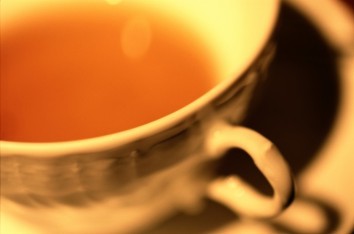Super foods, the ultimate health foods – Tea

Black or white, strong or weak, with or without sugar, tea is the world's favourite hot drink. And it's a great pick-me-up when your energy and concentration is flagging. It has been drunk in ancient China for thousands of years. It spread to Japan around 805 AD and to other parts of the Orient, but did not reach Europe until 1610, when the Dutch East India Company imported samples to Holland.
Tea leaves vs tea-the-drink
Tea leaves contain protein, B vitamins and the minerals potassium, phosphorus, calcium, magnesium and iron. When drunk as an infusion, however, tea is not especially rich in any of these, except for fluoride, which protects against tooth decay.
A rich source of antioxidants
Both green tea and regular (black) tea are rich in antioxidants known as catechins (a type of polyphenol), shown to be more potent than the well-studied beta-carotene or vitamin E. Green tea has a number of simpler catechins while black tea has more complex ones known as theaflavin and thearubigen. One of these catechins called EGCG has been extensively studied and can inhibit the growth of tumours in animals.
Tea and heart health

Dozens of studies have examined the link between tea and heart disease and reported that people who drink it regularly have a significantly lower risk of heart troubles than those who don't. Those who drink 3 to 4 cups a day have a reduced risk of heart problems of 11 per cent. It seems that tea catechins help maintain heart health by decreasing inflammation, lowering the tendency for clotting (an early factor in heart attacks) and by keeping the arteries more ‘elastic'.
Tea and caffeine
The addition of milk or lemon has no effect on the absorption of tea catechins. As black and green are both derived from the same plant Camillia sinensis, their caffeine count is about the same.
A weight loss pick-me-up
Best of all, it you take it black with no milk or sugar, tea has no kilojoules and has the ability to both relax and revive you. Recently scientists have discovered that a unique natural compound known as theanine seems to be responsible for this.
Theanine
Theanine appears to have the ability to help you through complex tasks such as switching attention and being able to ignore distractions - tasks that may be hindered by overstimulation and which are important for today's hectic lifestyle. It may also curb the over-stimulating effects of caffeine to enhance speed and accuracy and diminish mental fatigue. So a cup of tea really is a great way to start and get through the day.
Nutrition stats
A cup of black Ceylon tea (250ml) supplies:
trace of protein, trace of fat, trace of sugars, trace of starch, trace of dietary fibre and 5 kilojoules (1 calorie).
Per 100ml brewed tea:
trace of protein, trace of fat, trace of sugars, no starch, trace of dietary fibre and 2 kilojoules (less than 1 calorie).
Easy ways to enjoy tea
- Pour yourself a cuppa!
- Make a jug of iced tea for hot days. Simply pour strong tea with a little sugar, mint leaves and lemon slices. Add enough sugar to taste.
- Soak dried apricots, prunes and sultanas in strong hot tea with a little sugar, cloves and a stick of cinnamon. Cover and leave to soak overnight to create a delicious dessert with thick Greek yoghurt.
Tea in the news
Theanine may boost attention levels if you're anxious
Theanine in doses of 200mg may help normal people with a tendency to high anxiety to concentrate better on their daily tasks. A Japanese study from the University of Shiga Prefecture reported that university students given theanine (with 100ml of water) displayed a slowing of their heart rate, improved attentional performance, and better reaction times, compared to members of the same group receiving placebo. No significant benefits were observed in the students with minimal anxiety. Article in the Journal of Functional Foods, 19 April 2011. Read more



